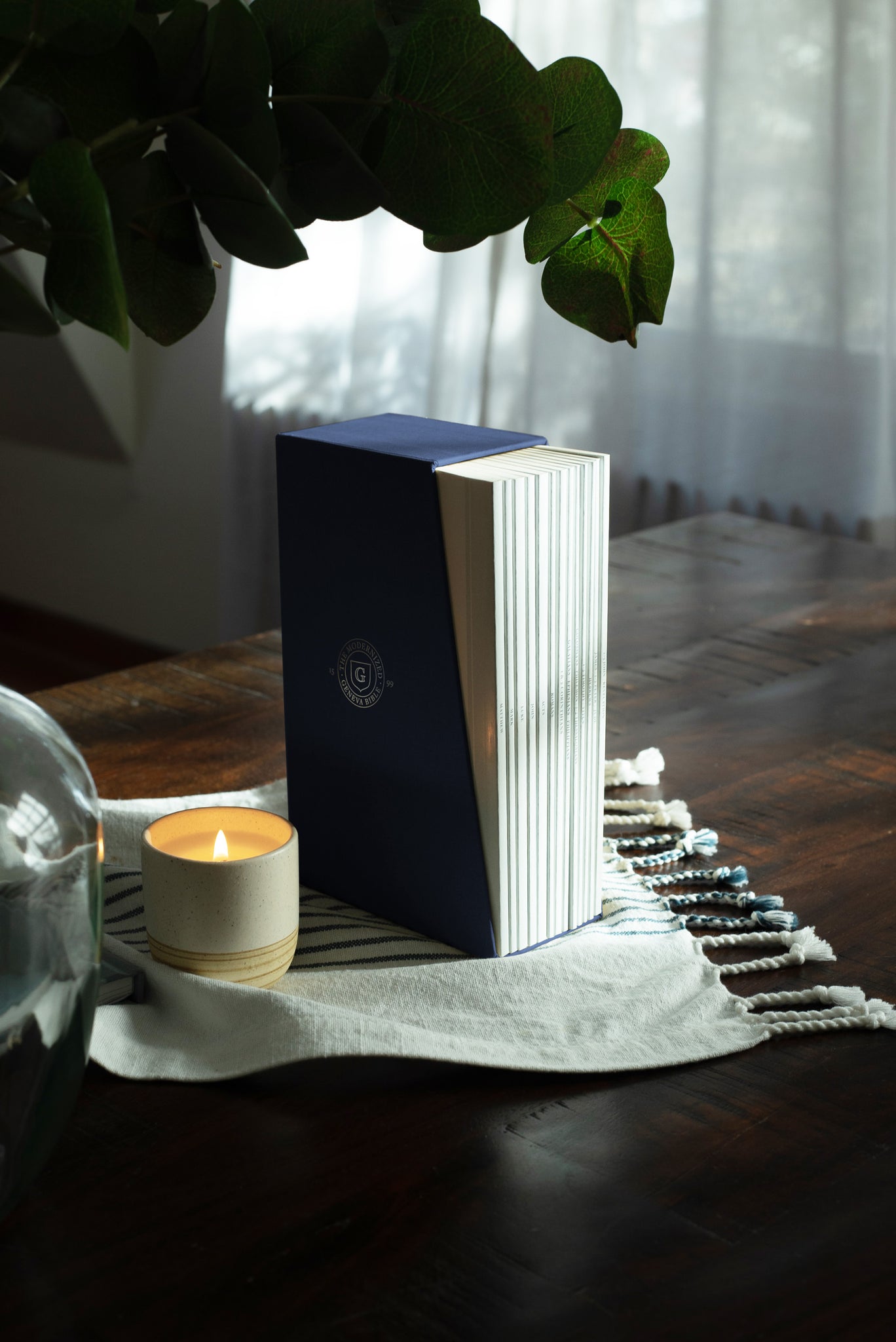The History of the Geneva Bible
We have set out to create a beautiful, functional, modernized version of the Geneva Bible, the English Bible translated in Geneva under the direction of John Calvin in 1560.
The History
Surprisingly, although this is one of the most important historical translations of the Bible into English, translated before the King James Version, and was popular with the Puritans, nobody reads this Bible anymore. What is the story of this translation and why was it forgotten?
The story of the translation of a complete Bible into English begins with Tyndale. Tyndale famously vowed that he would make sure that even a lowly plowboy would be able to know more Scripture than the average theologian. He translated the entire New Testament, the Pentateuch, and various other books in the Old Testament before he was captured by the authorities and executed.
However, before he was strangled at the stake, changes had already taken place in his native land. Henry VIII, king of England, broke from the Roman Catholic Church, famously so that he could divorce his wife. Tyndale’s own friend Miles Coverdale managed to get the king to authorize an English translation of the Bible based largely upon Tyndale’s translation. It was published in 1539, and the king commanded that large copies be displayed in churches.
Despite that, the situation in England was precarious. After Henry VIII and his son died, the very Catholic Mary brought the nation back to Catholicism and killed the most prominent Protestant leaders. Anyone who wanted to escape martyrdom had to flee to the European continent. Many English Protestants fled to Geneva, where John Calvin was reforming the city and making it increasingly Protestant. While there, the English exiles made a new and improved English translation. The translators were William Whitingham (an Englishman who married Calvin’s sister), Christopher Goodman, Anthony Gilby, Thomas Sampson, and Miles Coverdale.
Although the Geneva Bible built upon Tyndale and the Great Bible, it was a huge advance in scholarship, and it was very much the first reader-friendly text. It was the first with chapter/verse divisions, the first with a legible font and a reasonable size, the first with italics to show what words were not in the original languages, and the first to include maps, marginal notes, chronologies and indices. Most exciting of all, it was the first Bible entirely translated from the Hebrew and the Greek. It was a book suitable, not just for displaying in churches, but for family reading.
And read it they did. For the next few centuries, the Geneva Bible would be the English Bible. In 1579 the Scottish parliament commanded that every household with adequate means should buy a Geneva Bible. When the Pilgrims went to America, they took Geneva Bibles with them. When the Puritans fought in the English civil war, it was the English Bible they took into battle. It was the Bible for brave men, and it was the Bible for families.
However, the Geneva Bible lost in the long run, and it was due to all those helpful marginal notes. Several of them spoke very fiercely about the right of subjects to resist their king, and King James was not happy with this and commissioned a new translation.
Decades after James' ban, Christians were still printing it with fake identifications like putting Geneva notes on KJBs, dating Geneva Bibles 1599, and printing Geneva Bibles with KJB covers. Even James' translators continued to prefer the Geneva Bible, quoting it in the KJB preface and preaching from it decades later.
Here's what the Geneva Bible of 1560 said about Pharoah: "The more the tyranny of the wicked raged against his Church, the more his heavy judgments increased against them, till Pharaoh and his army were drowned in the sea, which gave an entry and passage to the children of God." The Geneva Bible even says when dealing with tyrants, "disobedience was lawful". Disobedience to tyrants was obedience to God. The men of Geneva included many study notes on the "all the hard places" because "errors, sects, and heresies grow daily for lack of true knowledge" of God's Word.
However, James' translation without these notes did not catch on and we might still be reading Geneva Bibles to this day, if it were not for the fact that the English Civil War happened. Rebels tended to use the Geneva Bible, and royalists both used the King James Bible and at times banned it. The Church of England promoted their Bible and after they won the war, the translation that got imported to the English colonies was, not surprisingly, the King James Bible. It was the authorized version indeed.


